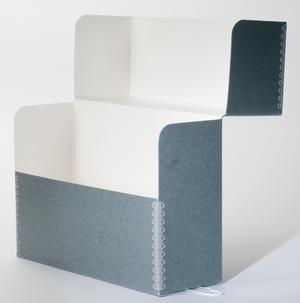- Contact Us
- Emergency Information
- Facility Rental
- Jobs
- Site Map
- Site Policies
- Web Accessibility
- Web Privacy
- © Harry Ransom Center 2025

SIGNATURES
Identified individuals are represented by a biographical sketch, a list of connections to other signatures, and, in most cases, an artifact from the Ransom Centers collections. Help us identify more signatures by submitting your suggested identification.
X
X
THE DOOR
 Location on door: front, panel 1
Location on door: front, panel 1
HECTOR MACQUARRIE
A Scotsman and second lieutenant in World War I, Hector MacQuarrie (dates unknown) was best known as a travel writer. His first two books, How To Live at the Front: Tips for American Soldiers (1917) and Over Here (1918), capitalized on the differences between American and British culture. The popular Tahiti Days was published a few years later in 1920 and solidified his reputation as a travel writer. In 1921, MacQuarrie opened Hector MacQuarrie's Bookshop at 27 University Place in New York City. In a 1921 article in the New York Evening Post, Christopher Morley described MacQuarrie's plans for his Scottish bookshop: "He promised to wear kilts every Friday; to keep a tame haggis on the premises; and to speak the Gaelic for any customer who makes a cash purchase of over $5. We have heard of bookselling being a cult: now it is also a kilt." Unfortunately MacQuarrie had to return to New Zealand soon after it opened, and its fate is unclear. In the late 1920s, MacQuarrie traveled extensively, suffering shipwrecks and exotic illnesses, and undertook the first automobile ride, in a Baby Austin, to the northernmost point in Australia, documented in his book We and the Baby (1929).

A letter from Hector MacQuarrie to Christopher Morley, October 8, 1922
Not long after opening his bookshop, MacQuarrie was required to travel to New Zealand to attend his dying mother. In this newsy letter, he offers his take on the New Zealand political scene and talks of two veterans of World War I: William Downie Stewart, Jr., a Member of Parliament and Finance Minister in the New Zealand Government; and Clutha Nantes MacKenzie, a politician and advocate for the blind who was knighted in 1935.

